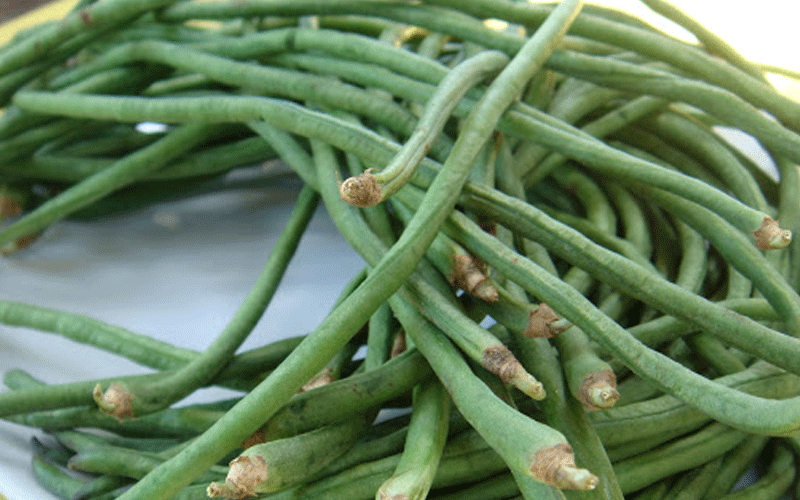Youth tries hand on rare Chinese bean with success
By Roy Lumbe, December 8, 2020
Also known as Asparagus beans, the bean is yielding massive profits for Peter Mburu, a Business Administration graduate who ventured into farming after unsuccessful attempts to find a job in his field of study.
Peter Mburu Kariuki’s face beams as he surveys the orderly lushness of his greenhouses on the quarter-acre piece of land in Lanet within Nakuru county.
All around him are Chinese long beans arranged in neat rows, climbing up on evenly spaced twine trellises.
Surprisingly, Mburu was not always a farmer. After graduating from Jomo Kenyatta University of Agriculture and Technology (JKUAT) where he studied Business Administration, he decided to venture into agriculture after unsuccessful attempts to find a job.
He says the job market is too saturated so he had to find an alternative to earn some income.
He learnt about planting the beans from his Chinese friend, who also supplies him with the seeds and got more information from the internet on maintaining the crop and he was set to go.
To start off, he used part of his savings and loaned some money from his father, which he used to establish the greenhouses.
Mburu has set up three greenhouses standing on a quarter-acre piece of land, which he maximises on the space and plants high value crops, including tomatoes.
They grow for a duration of three months before they mature and get ready harvesting.
The beans belong to the family of legumes, have a very pronounced flavour and have a distinctly beany taste, and are not sweet like other green beans.
Long beans work best briefly steamed, stir-fried, or braised, but also hold up well when added to stews.

They are most valued for their retention of colour and texture when used in stews and other slow-cooked dishes.
He says the beans have not been embraced so much in the local market, yet it is packed with many health benefits, including Vitamin A and C, and being a green vegetable, it is rich in phyto chemicals and antioxidants.
“The Kenyan market is slow in accepting new products, few people are trying them out, however, I am not discouraged in making a mark,” said Mburu.
The price of the bean varies, ranging between Sh80 and Sh120 per Kilogramme. He harvests up to one tonne a week.
Not popular in Kenya
He says some of the main challenges he has faced for the last one year he has been growing the beans is the infestation of black moths and securing the seeds is a challenge.
Mburu, however, says he has no competitors since many farmers have not embraced the foreign plant. He plans to expand his farming activities to five acres.
He says agriculture is an extremely demanding job and for anyone to be successful, they should be ready to get their hands dirty.
He calls on youths not to fully depend on white-collar jobs saying agriculture is the next frontier, still unexplored.
“I sell the beans to a specific clientele who are mainly Chinese nationals, they love the produce and it keeps me going,” he adds.
For tomatoes, Mburu says it has not been easy marketing the produce as the market has become porous and most people prefer imported tomatoes, which is much cheaper.
He calls on the government to empower the youth, especially those desiring to venture into farming, through providing subsidised fertiliser.
“Young farmers do not have it easy in the market, everything is costly and one needs capital to remain afloat,” said Mburu.
His father, Vincent Kariuki says he accepted to support his son because agriculture is a big venture, dispelling beliefs that.
He calls on parents to support their children in other ventures other than just getting employed.
“Supporting our children is one way to ensure you keep them out of drugs and alcohol abuse,” asserts Kariuki, who is now helping his son penetrate the export market, adding, “We need to expose them to how we earn money as parents, they need to understand money management as we show them the different sources of employment, so they can become self-reliant.”